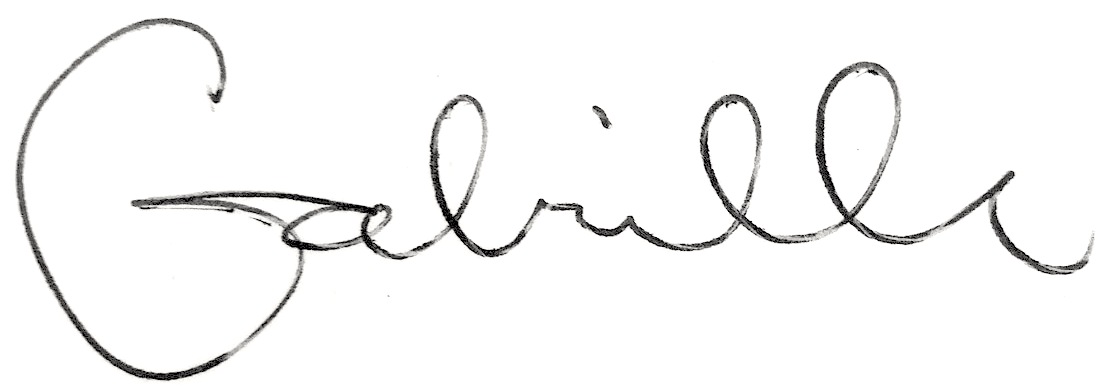You’ve decided to divorce and your ex has offered a financial settlement. The offer is low, but your ex claims it’s half of everything the two of you have.
It’s possible that you or your ex have made an honest mistake. But it’s also possible that your former spouse is hiding assets from you so they could pay you a smaller financial settlement. Aside from it being punishable by law, your ex hiding assets during divorce can also affect your financial status when you begin to rebuild your life after divorce.
If that’s the case, your future financial security depends on your willingness and ability to find those assets.
Here’s where you should look if you suspect that your spouse is hiding assets during divorce:
1 Income tax returns
Even people who will lie to a spouse tend to get attacks of honesty when it comes to the IRS. (The agency’s ability to put people in jail might have something to do with it.) Look at the last five years of returns, searching for inconsistencies in income or the existence of real estate holdings, trusts, or partnerships. The IRS can send you copies of your returns. None of those things are absolute evidence that a spouse is hiding money, but they are all spots you should investigate further if you find them.
2 Repayment of a “debt”
A common strategy that is used when someone is hiding assets during divorce involves “paying back” a fake debt to a friend or relative. Once the divorce settlement is final, the “lender” returns the money. You might be able to find signs of this in your ex’s financial statements (more on this below)
3 Salary paid to a relative or non-existent employee
This involves the same idea as repaying a phony debt, but works best when your spouse owns a business. The husband or wife puts someone on the payroll who doesn’t actually do anything and who is willing to return that money when the divorce settlement is final.
4 Checking and savings accounts
Another way to figure out if your ex is hiding assets during divorce is by requesting copies of all financial statements during the discovery phase of your divorce. Look for substantial purchases you never knew about, including investments or expensive gifts that weren’t for you. Statements from accounts you never knew about are even more revealing. Look at deposits and withdrawals, too. These can also point to hidden spending or assets.

5 Credit bureaus
Equifax, Experian, and TransUnion collect and report U.S. consumer credit information. Go to www.annualcreditreport.com to get a free annual report from each of these three agencies. Look for lines of credit or mortgages that don’t include you.
6 An account set up in your child’s name
Sure, your husband or wife could be saving for Junior’s braces or college education. But if they’re hiding assets during divorce, that account could be a place to stash money now as they to retrieve it later.
7 Expenses paid for a new squeeze
Another way that an ex could be hiding assets during divorce is by disguising them as pricey gifts. This can include but may not be limited to jewelry, travel, rent, or tuition. Your settlement doesn’t get smaller just because your ex’s new sweetheart has an “expensive” taste.
8 A boss or business partner who is willing to help hide funds
Hiding assets during divorce can also sometimes be a team effort. A cooperative boss might hold off on awarding a bonus or promotion until your settlement is final. A business partner could agree to take actions that would make the company worth much more—a franchise agreement, sale or partial sale, initial public offering, a large deal with a big client—only after your settlement. Either way, your spouse’s assets are undervalued, and you lose.
Some of these tricks are ones you can find yourself, if you’re patient and detail-oriented.
Others, particularly those involving your spouse’s business dealings, might require a forensic accountant, a professional trained to spot financial wrongdoing, who will typically expect to be paid before settlement.
If you lack the funds to hire a forensic accountant, consider divorce funding.
Divorce funding gives qualified spouses lines of credit that help them pay legal costs, expert fees, and living expenses while they work toward a fair divorce settlement. It’s an increasingly popular product that can help divorcing spouses find hidden assets, ensuring a more secure financial future for themselves and their children. Depending on your financial situation, the cost of divorce funding may save you from walking away from thousands of dollars that you never realized you could have had.

Nicole Noonan, Esq., CEO of New Chapter Capital Inc., specializes in divorce funding. She formerly served as President of Novitas US. She is a nationally recognized divorce expert and pioneer of divorce funding. Crowned the “Fairy Godmother of Divorce” by the New York Post.
Recognized by New York Magazine as New York’s Women Leader’s in the Law 2014. She has been seen on Good Morning America, Bloomberg TV, ABC and France 2.
She also been featured in The Huffington Post’s Women in Business, American Banker, The Economist, Forbes Magazine, Fortune Magazine, and The New York Times. Nicole is an experienced attorney who practiced with a number of top rated divorce law firms throughout her career. She was instrumental in the litigation of a large number of complex family law cases involving both financial and custody disputes, including some of the leading reported cases on these areas.
Nicole holds a BA from Boston College and a JD from Seton Hall University School of Law. She clerked for the Hon. Douglas M. Fasciale, J.S.C., Nicole is an active member of the New Jersey Bar Association, American Bar Association, and New York Women’s Bar Association. She sits on the Seton Hall University Stillman School of Business Leadership Council. Additionally, she is a certified New York Mediator.
New Chapter Capital, Inc.
Funding To Untie The Knot ™
T: (212) 404-7807
C: (908) 400-4049


FOLLOW GABRIELLE

DISCLAIMER: The commentary, advice, and opinions from Gabrielle Hartley are for informational purposes only and not for the purpose of providing legal advice or mental health services. You should contact an attorney and/or mental health professional in your state to obtain advice with respect to any particular issue or problem.
- One Edgewater Plaza Suite 304, Staten Island, NY 10305
- 266 Smith Street, Brooklyn, NY 11231
Northampton MA
PHONE:
New York: (917) 905-4553
Boston: (413) 450-0420



